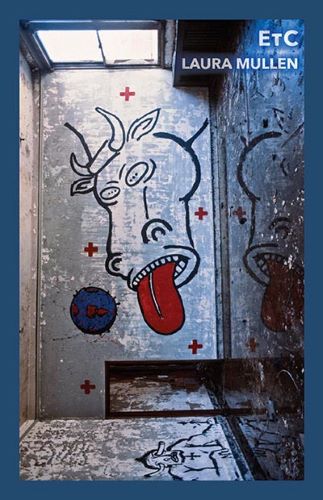Aufgabe – 2009
Number 8
2009
Annual
Sima Rabinowitz
It’s a good thing Aufgabe only comes out once a year because it takes nearly that long to read the whole issue – and the whole issue is worth reading. The 2009 special feature is a huge section on Russian poetry and poetics guest edited by Matvel Yankelevich, who teaches Russian literature and language at Hunter College in New York and is a founding member of Ugly Duckling Presse. Poems, essays, and manifestos by fifteen contemporary Russian poets appear in translation (no originals are included), along with Yankelvich’s introductory essay. The poets’ essays are of particular interest, offering insights both about the nature of poetry in general and of contemporary Russian poetics in particular.
It’s a good thing Aufgabe only comes out once a year because it takes nearly that long to read the whole issue – and the whole issue is worth reading. The 2009 special feature is a huge section on Russian poetry and poetics guest edited by Matvel Yankelevich, who teaches Russian literature and language at Hunter College in New York and is a founding member of Ugly Duckling Presse. Poems, essays, and manifestos by fifteen contemporary Russian poets appear in translation (no originals are included), along with Yankelvich’s introductory essay. The poets’ essays are of particular interest, offering insights both about the nature of poetry in general and of contemporary Russian poetics in particular.
I was quite taken with an essay that reads like poetry by Dmitry Vodennikov, translated by Peter Golub. “It is very easy to live when you personally have to answer for nothing. Then, every private trifle seems interesting,” the poet says. His plea is for poets to answer personally for their poetry, and the juxtaposition of personally, private, and personally in this equation turns the purely “personal” into “personally responsible.” Quite a different thing altogether! There is an especially appealing intelligence at work here.
The issue also includes the work of a dozen and a half extremely inventive poets, some in translation. These poems and prose poems are serious, even solemn; often dense; always original; and rarely, if ever, ordinary or easy. They are not wildly odd as configured on the page, but few are predictable in their presentation either. In “Farm Stock & Crop Data,” Tyrone Williams creates lines ending in phrases elevated in tiny small cap superscript; and a poem by Laura Sims “In a field in a” repeats the phrase “field in a field” over 12 lines with variations in breaks (spaces) that create a visual “field” against which she sets the remaining lines.
The magazine’s final section consists of “essays, notes, and reviews” by ten writers. Most unusual is a beautifully crafted personal essay by Margaret Ronda, “The Hunger Patient,” a tragic family story recounted in a poetic and engaging style that fits the subject (starvation and illness), avoids sentimentality (it is sleek and raw), and reinvents the body of the essay form as its subject tried to reinvent her body. Work by Alan Davies, Paolo Javier, and Nathalie Stephens is equally original and engaging. An academic (as in analytical) essay by Trish Salah (“After Cissexual Poetry: Thinking Trans Figures and Feminist Poetics Now”) is accessible for the non-academician.
In her prose poem “Prehistoric Fable,” Paula Koneazny writes, “In our era, we were percussive, timed to the minute, instead of subtlety we were given explosion.” I’d say that Aufgabe, on the other hand, manages – and beautifully – to give us both.
[www.litmuspress.org]




